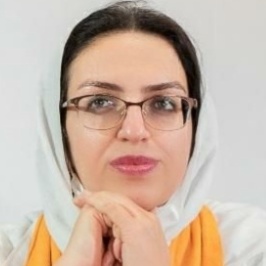The 10th session of the 84th series of Congress 60 educational workshops, dedicated to travelers and companions, commenced on Wednesday, April 16th, 2025, at 9:40 a.
The session was led by Mr. Hossein Dezhakam as the Guardian and Master of the ceremony, with Traveler Jafar, serving as the secretary. The agenda was “Capacity and Responsibility, Losing Direction”.
Hello, friends. My name is Hossein, and I am a traveler.
I hope you are all doing well. By God's grace, I am also well. Today is April 16th, 2025, and the time is 14 minutes to 10 in the morning. I finished my work earlier today because I started very early, and I didn’t go to the pool as I saw there was a lot of commotion. So, I arrived about 15 minutes earlier than usual. I hope you are all doing well; I am, too.
There are a few points I’d like to bring up. Firstly, this week marked the first time we shared our experiences about weight loss. Let me be very clear with you: scientifically speaking, there is no rational or logical method for losing weight. Science earns its credibility through its results. At this point, people are resorting to extreme measures: either eating nothing or severe exercise. They are cutting the intestines, shortening them, removing excess fat through abdominoplasty, suctioning fat, hollowing out the skin, counting calories, following strict dietary rules, adopting raw vegan diets, and other gimmicks—but none of these methods have truly worked. They simply haven’t.
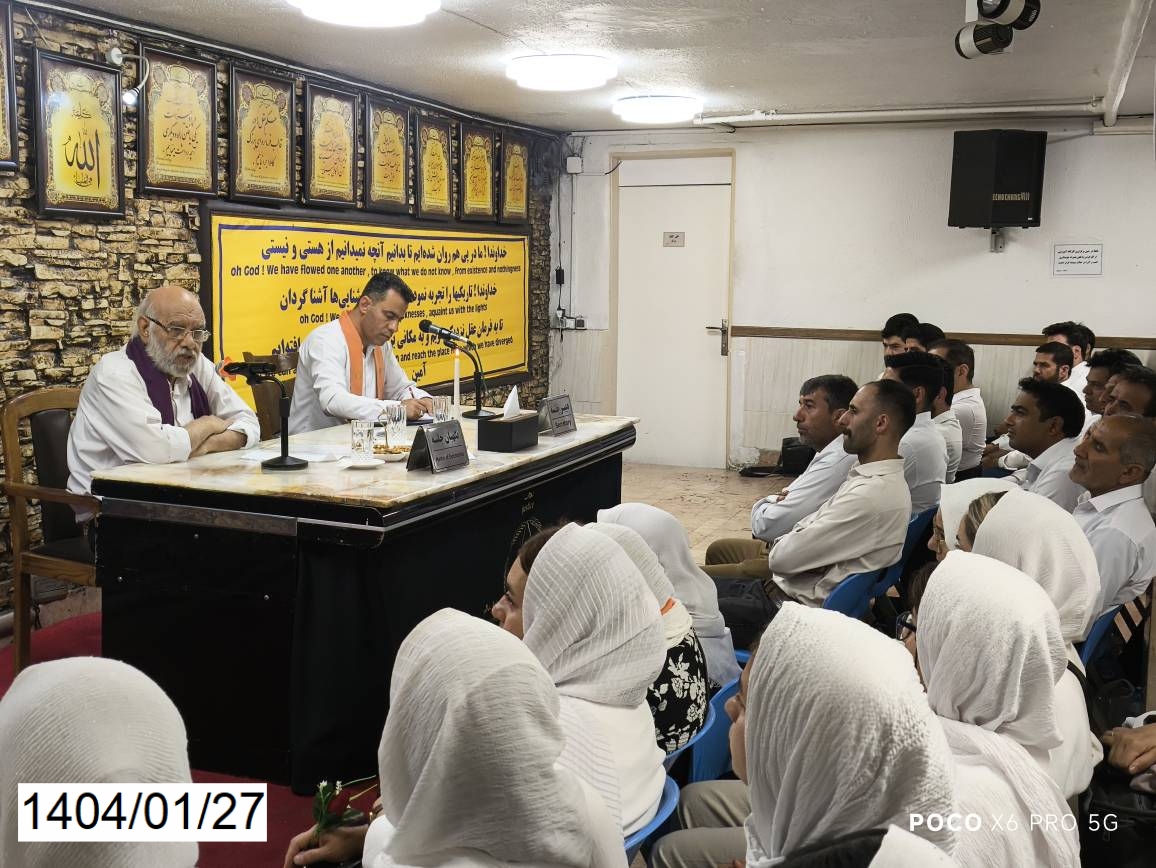
The approach presented by Congress 60 and the one I advocate is a “Third path”, distinct from all others. Just this morning, a woman came in who had lost 43 kilograms effortlessly—without any unnecessary strain. She ate everything she wanted. So, stop falling for the nonsense circulating on the internet. If you want to eat eggs in the morning, eat them with bread. What does it mean to say “Don’t eat bread”? If someone wants a piece of bread with their eggs, they should have it—there’s no harm in that. If they want to have some cheese with their eggs, let them have it. Avoid restrictive prescriptions like “Don’t eat sugar!” Why shouldn’t they eat sugar? They should eat sugar. Don’t drink soda, don’t consume sweets—these recommendations don't work. If they did, they would have worked by now.
We have tried all methods. Counting calories is completely unnecessary. I’ve discussed how much energy the human body needs, but that does not mean you should obsessively count calories—saying, “This food is 50 calories, this one is 10 calories.” If calorie counting worked, people wouldn’t be undergoing surgeries where their stomachs are cut open just to remove 15, 20, or even 30 kilograms of fat! They wouldn’t have to endure painful procedures, stitches, and all sorts of interventions. If extreme workouts with barbells and dumbbells truly helped, then why do people who lose weight rapidly end up with sagging skin on their stomachs, arms, and other areas? Stop doing these things.
Guides and mentors should not misuse their positions by promoting personal opinions outside the Congress 60 protocol. According to Congress 60’s protocol, a proper breakfast must include eggs—no junk food. Lunch includes a salad. But prescribing “Drink milk and dates” or “Milk and walnuts”—what is that? If I find a mentor advising such things, recommending extreme dietary rules like prescribing eating or not eating Hot and cold tempered foods, I will remove them from the system, no matter where they are. People should simply eat normally. If someone wants tea, they should drink it. If they want sweetened tea, they should have it. If they want soda, let them drink it. If they want salad, or even a hearty meal like Kaleh Pacheh (a traditional Iranian dish), they should eat it. What matters is consuming food properly.
Our third path is based on body language—not calorie counting. Calorie counting and other methods have not worked for centuries, and they will not work. Today, Dezhakam has presented a new approach, and I can confidently and proudly say: there is no other way. You have all lost weight—40, 50, even 60 kilograms—and this method is unlike any other.
I have also written a book titled “Weight Loss and Body Structure”. I initially planned to include photos, but it took too long to gather the ones I wanted. The first edition will be published soon without images, but future editions will include them. To lose weight, follow these principles.
Do not impose unnecessary restrictions on students, because the human body consists of 40 trillion cells. Last time, I mentioned that counting from 1 to 1 billion would take 33 years! Now imagine 40 trillion cells—each of them has intelligence, awareness, and understanding. They know what to do. Because of their consciousness, I discovered and invented the method of treatment known as DOD and the DOD triangle [standing for DST method, Opium tincture, and Dosage], alongside the DST method [standing for Dezhakam Step Time].
The same protocol that helps a person quit opium is used for quitting methamphetamine, amphetamines, fentanyl, alcohol, and other drugs. It is also applied to breast cancer, ulcerative colitis, multiple sclerosis, and other illnesses. Research papers on these are emerging. What is their rout and foundation? They are due to the language of the body.
These 40 trillion cells possess intelligence, awareness, and understanding—they only need the right conditions and essential nutrients to heal themselves. Do you consciously control your breathing? Do you command your heart to beat? Do you tell your kidneys to filter toxins? Your liver, if artificially replicated, would require an infrastructure the size of Tehran’s oil refinery—yet it functions perfectly on its own. You don’t instruct your bladder on what to do, nor do you direct your coronary arteries. Your heart, a simple piece of muscle, has been working for 80 or 90 years without your intervention.
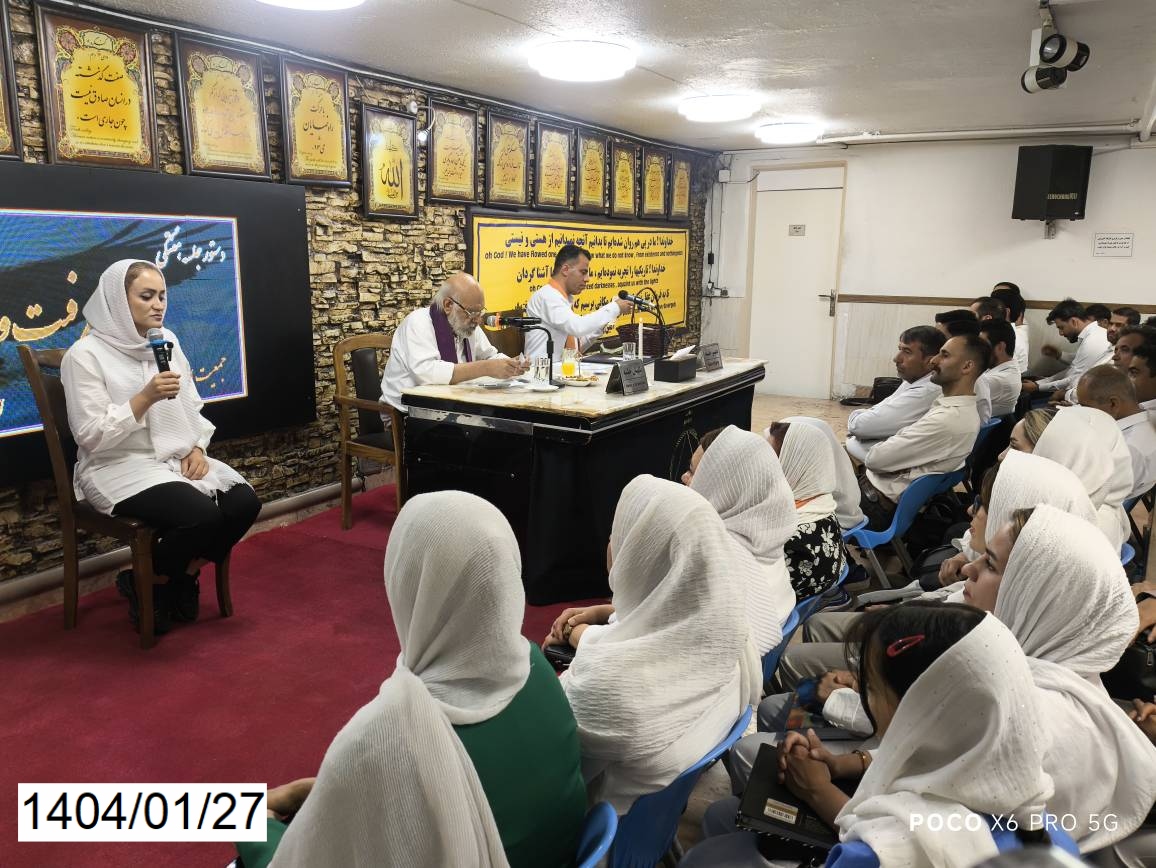
Therefore, whether in addiction cure or any other medical approach, we must gain a complete understanding of body language and implement it accordingly.
I hope that in Congress 60, innovative and practical methods will prevail, rather than restrictive dietary rules like “Drink milk and dates” or “Eat milk and walnuts.” People should eat freely and comfortably, and they will achieve results. Thinking that one method is better than another often leads back to calorie counting, strict diets, and rules like “Don’t eat sugar” or “Don’t eat sausages.” These approaches don’t work, and I hope this issue is resolved permanently.
We conduct evaluations, and soon, God willing, we will test the Joneses’ guides to ensure they are strong and knowledgeable. So, make sure to use this program correctly.
Next issue: The border guards informed me that some people from other towns have pitched tents in the alleys and slept overnight. Wherever there is a house near a mosque, police station, hospital, or other public places, property values tend to decrease. Now imagine a neighborhood where addicts gather—it’s chaos! (laughs) But we have proven that we are not addicts anymore; our behavior and actions are different.
On Wednesdays, we have 300, 400, or even 700-800 people coming and going [in the Academy branch of Congress 60, Tehran]. We must be considerate of our neighbors. Don’t change clothes in the alleys or sleep near people’s homes. If you want to pitch a tent, there’s a park nearby—Park Bahar. Go there and set up your tent; no one will bother you. Make sure everyone knows to use the park for tents, not the alleys.
Another point: Avoid extremes in anything. Extremes lead to disaster. To encourage the children, we sometimes let them read a message in the meetings, but when 200 people are waiting in line to share their ideas on the agenda, it’s not the right time for children to come and read the memorized messages. Everything must be done in its proper place.
We also have extended this principle to other activities—letting children handle microphones during sessions, read messages, or take on roles like discipline guardians and guest attendants. These practices are incorrect.
On Saturdays, I attend family group meetings, where we discuss issues raised in the family group Assistant Council. For example, on Saturday, April 12th, 2025, we discussed how these practices [letting children to participate in the meetings] are becoming excessive. Even adults are being overlooked in favor of children, which leads to spoiling them. Over time, they become selfish, arrogant, and misunderstand their roles.
Reading texts during workshops, announcing journeys, participating in sessions, and serving in roles like microphone handlers or guest attendants should only be done by adult travelers and companions. Children under 18 cannot perform these tasks. These roles are meant for travelers and companions.
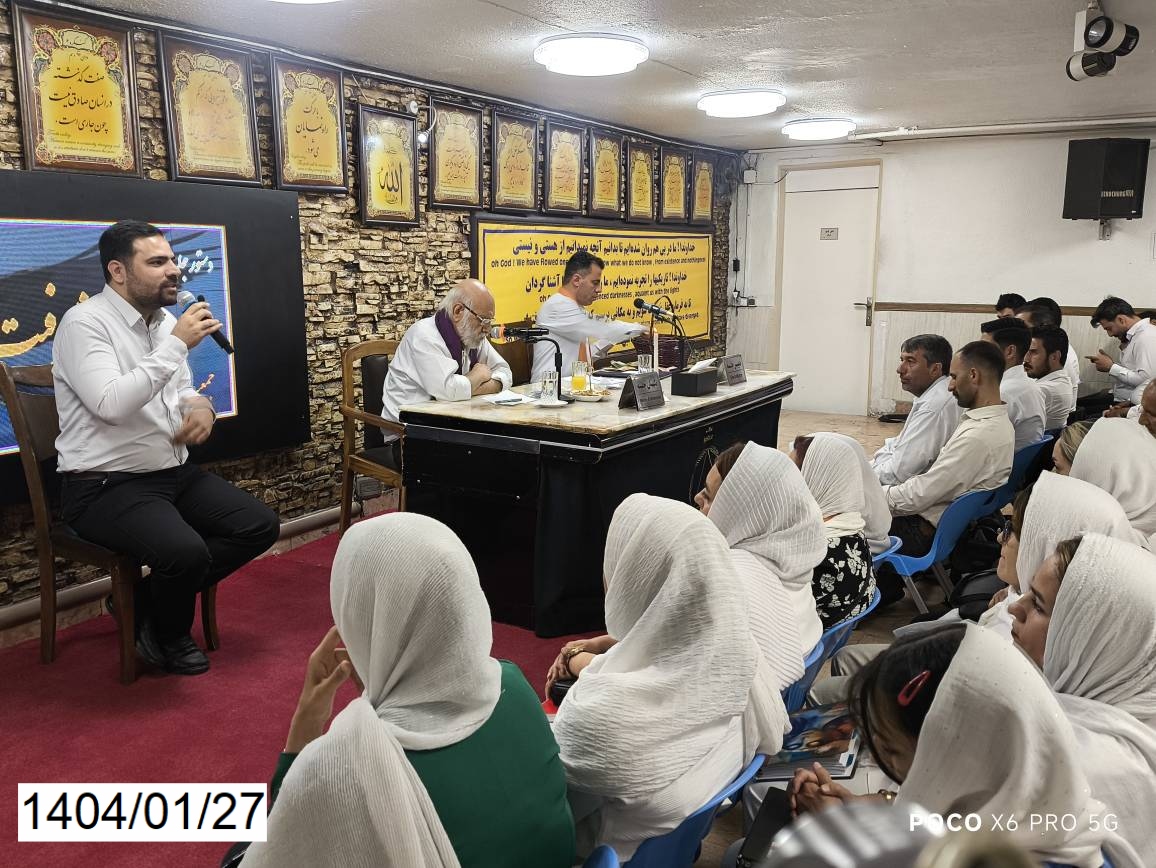
A newly arrived woman who doesn’t yet know how to speak should read the messages or handle the microphone to start their journey in Congress 60. We are curing travelers’ [addiction] and companions, so we cannot neglect them to focus on children.
Even in Mashhad, there was once a case involving someone under 18 who was a consumer. He underwent treatment and recovered, but the Congress 60 members gave them excessive attention—applauding and cheering—which ultimately ruined them. This issue must be carefully considered.
Next issue: Interviews [of newly accepted guides of Congress 60] have started, and I’ve introduced new interview forms for Guides, Guides with orange or pistachio-green scarves. These forms are completed by the center, then the interview meeting takes place in a room where three people ask questions from an interviewee. Didebans’ Assistants sit in as interviewers, but it’s not necessary for Didebans to be present.
For example, male travelers applying for orange scarves are interviewed by assistants from their own group of male travelers. The first interviewer asks about substances—how they would handle specific cases. The second interviewer asks about worldview, and the third focuses on border guard rules, smoking regulations, and other policies. If the candidate answers all three sets of questions correctly, they pass.
Yesterday, 32-33 female travelers from Kerman and Isfahan were interviewed. Only 14 passed, while 16 were rejected. Rejected candidates are not dismissed outright; they are invited to retake the test in two weeks. These interviews must not be mere formalities.
Female companions undergo the same process, with three interviewers covering different topics. This is the most critical part and must be taken seriously. Weak or unprepared guides are not acceptable—they must be knowledgeable and up-to-date to lead others effectively.
Another issue: Capacity, responsibility, and losing one’s direction. Every person has a goal they must achieve, symbolized by the “qibla” (direction of prayer in Islam). Losing this goal resembles losing one’s qibla.
For example, someone given a responsibility in Congress 60, such as a border guard, may lose their direction or goal of serving others [in the middle of their serving period, they may change their mind and follow aims other than serving people]. Similarly, a guide may change their behavior and ethics after being appointed.
Congress 60’s rules apply to everyone—whether a first-time traveler, a Dideban, or myself. No one can claim exceptions based on their position. For instance, I must sit in the meeting like everyone else, not stand at the back of the hall. Everyone must follow the rules.
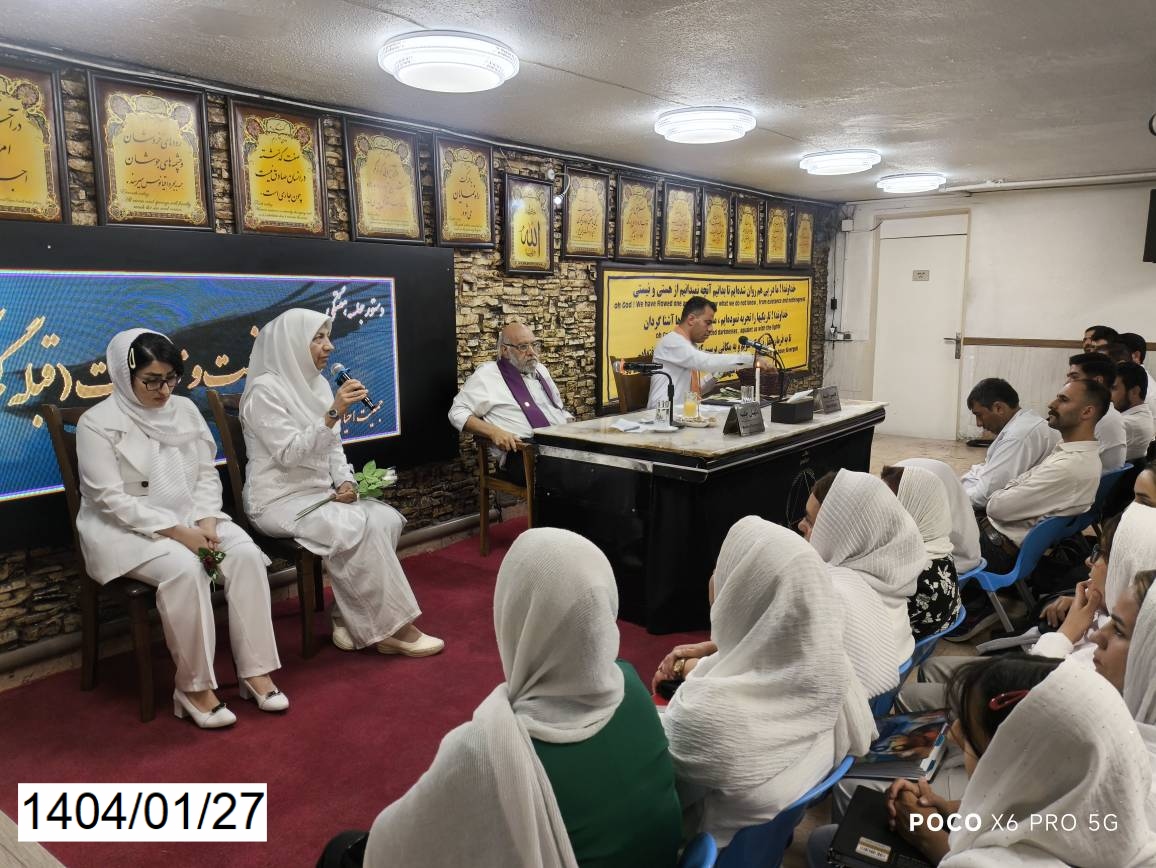
A guide cannot claim special privileges, such as inviting students to their home, traveling with Congress 60 members, or collaborating with them on personal projects. These actions represent losing one’s qibla. We must adhere to all rules.
Someone might take on a role in the tea room, serving tea—but suddenly, they start making distinctions. They give tea to one person and withhold it from another. One gets weak tea, another strong. One gets a single sugar cube, another gets two. Someone else receives cold tea—it becomes a mess. This is losing sight of one’s direction, losing one’s purpose.
No matter what position, rank, or status we attain, we must not lose ourselves. We are the same people, whether we hold a title or a responsibility. The higher the position, the more closely one must adhere to the rules—there are no exceptions.
Congress 60 does not operate on a quota system.
There are no special privileges for Didebans, their Assistants, or anyone else. The best people in Congress 60 are those who serve. Who determines the value of Congress 60 members? Their service, their conduct, their contributions.
Yesterday, I saw this issue among female travelers, and today among male travelers.
A female traveler came to Congress 60. She had breast cancer—she underwent treatment here, and she recovered. Another person had a different condition, overcame it, and was cured. I tell them:
“Look, ma’am, look, sir—you would have spent hundreds of millions of tomans in hospitals out of Congress 60 and still wouldn’t have recovered. Soon later, the cancer might have metastasized, and you would have been gone. Now that you have found healing in Congress 60, you must value it. Repay that debt through service. Then honor your teacher and your guide.
“Someone helped you escape certain death—you must recognize and respect that. You come to Congress 60, and you are healed. Addiction is considered incurable worldwide, but here, you recover. Once you are healed, do not lose sight of your purpose.”
[In Surah Al-Ma'arij, verse 19] it has been mentioned
Human beings tend to be desperate in hardship.
When faced with difficulty, they plead and beg—this is part of human nature. But when prosperity comes, they forget their struggles and become arrogant, even denying their past suffering. Some even say:
“I was never really sick—it was a mistake. I recovered, so I was never truly ill.”
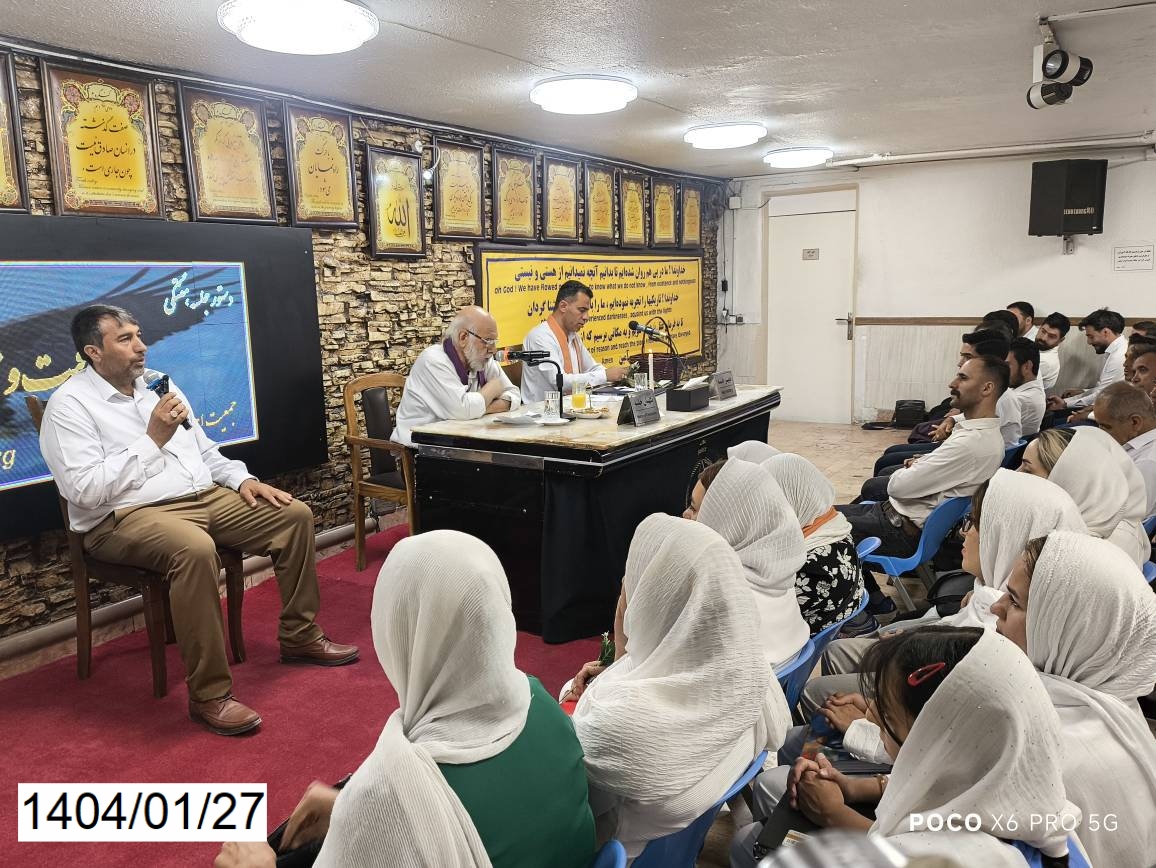
This is a failure to appreciate the journey. Losing sight of one’s purpose means forgetting the value of what has been given. One must be grateful for blessings, not act in opposition to them—this is what “to lose direction” means.
So, in every role we hold, our service must be sincere.
If we become an agent, we must remain humble—we must not wield our authority like a weapon. If we become border guards, we must enforce the rules with kindness.
A first-time traveler should respond to a border guard’s instructions with respect.
If we are border guards, we should follow an agent’s guidance with obedience.
If we are guides, we must understand our responsibilities fully.
We must uphold these principles.
The members of Congress 60 have solved challenges that have remained unsolved for humanity. We have overcome addiction, smoking, obesity—even COVID-19.
Look at the transformations: lots of people weighed 40, 50, 60 extra kilograms. They even couldn’t move. But now, they’ve lost 30 kilograms. How should this person express my gratitude?
A man once had surgery to remove fat. I asked him, “How much did it cost?”
He said, 120 million tomans.
Even after spending so much, the operation left him incomplete—his body was damaged. And now, after experiencing true healing through guidance, should he merely place 200 tomans in an envelope as thanks? I’m not saying he must give a large sum, but shouldn’t he at least show genuine appreciation?
Do we even understand what it means to lose 40 kilograms?
To overcome smoking?
To break free from heroin, opium, methadone? [They are great deals, then how could it be possible for one to appreciate these great achievements? For the matter of appreciation, is it enough to give our guide an envelope containing 200 thousand tomans? “Absolutely No”.
Losing sight of one’s direction means being ungrateful.
Being ungrateful means the person has lost their qibla. Gratitude brings more blessings, while ingratitude leads to loss.
Ali ibn Abi Talib said:
“If someone teaches me even one word, I am their servant.”
Now, think about those who serve us—who guide us—who change our lives. We must always be thankful to them.
Fortunately, thanks to the teachings of Congress 60, most Congress 60 members are indeed grateful, I claim so because Congress 60 is now in a good status, and it has earned scientific recognition, social respect, financial stability, and credibility—all due to the dedication of its members.
We must always remember who we were and where we started.
There’s an old story about Ayaz and Sultan Mahmud. Ayaz was one of the Sultan’s servants—a slave, in fact. Over time, Sultan Mahmud grew to respect him deeply and entrusted him with all matters. It’s a trait we humans have—when someone serves with dedication and effort, others often envy them. They spread rumors, insult Ayaz, and talk behind his backs simply because he stand out.
It’s similar to how diligent students were mocked in the past—called names like “bookworm” or “nerd.”
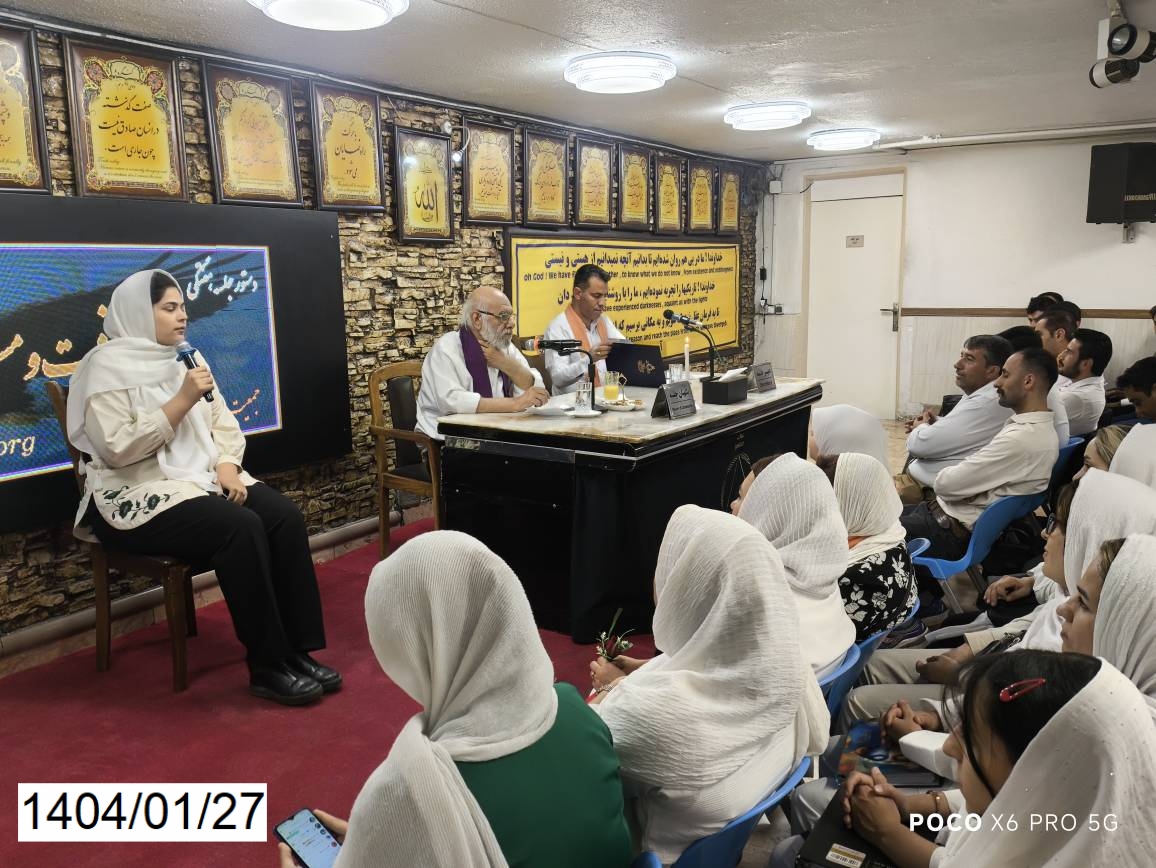
People began telling the Sultan:
Ayaz has a treasure hidden in his room. He takes bribes, hoards gold in secret.
The Sultan dismissed the accusations but eventually decided to investigate. He gathered his army commanders and confronted Ayaz.
“Search his room! Let’s see where this treasure is.”
They entered Ayaz’s quarters and found nothing—just a pair of old shoes and a tattered cloak.
The Sultan asked, “Why do you come here every day?”
Ayaz replied: “I come here to remind myself where I started. I arrived at this palace with nothing with these worn-out shoes and this ragged cloak. My only possessions were these humble garments. I look at them daily to ensure I never forget who I was—to stay grounded and not lose my wayand not be arogant.”
Another story about Sultan Mahmud and Ayaz:
Once again, jealousy consumed the Sultan’s commanders.
They asked Sultan Mahmud: “Why do you favor Ayaz so much?” “He’s just flattering you—he’s a sycophant, just trying to impress you!”
The Sultan decided to prove Ayaz’s worth through a demonstration.
He gathered all his commanders and told one of them:
“A caravan is passing one kilometer from here. Go and find out where it is coming from.”
That commander left, returned, and whispered to the Sultan:
“It’s coming from Rey.” The Sultan asked, “Where is it going?” He answered: “I didn’t ask.” The Sultan sent another commander: “Go find out what goods the caravan is carrying.” He returned and said, “It’s carrying silk.”
“How many people are in the caravan?” The Sultan asked. He replied: “I didn’t ask.” The Sultan sent a third commander: “Go find out who the caravan leader is.” He returned and answered, “His name is Jafar.” The Sultan asked: “How many camels does he have?” He replied: “I didn’t ask.”
The Sultan then turned to Ayaz: Asking him to go and gather information about the caravan.
Ayaz returned with a complete report:
- “It is coming from Rey and headed to Kandahar.”s
- “It is carrying silk.”
- “The leader is Jafar.”
- “There are 50 camels.”
He provided every detail without being specifically instructed to do so.
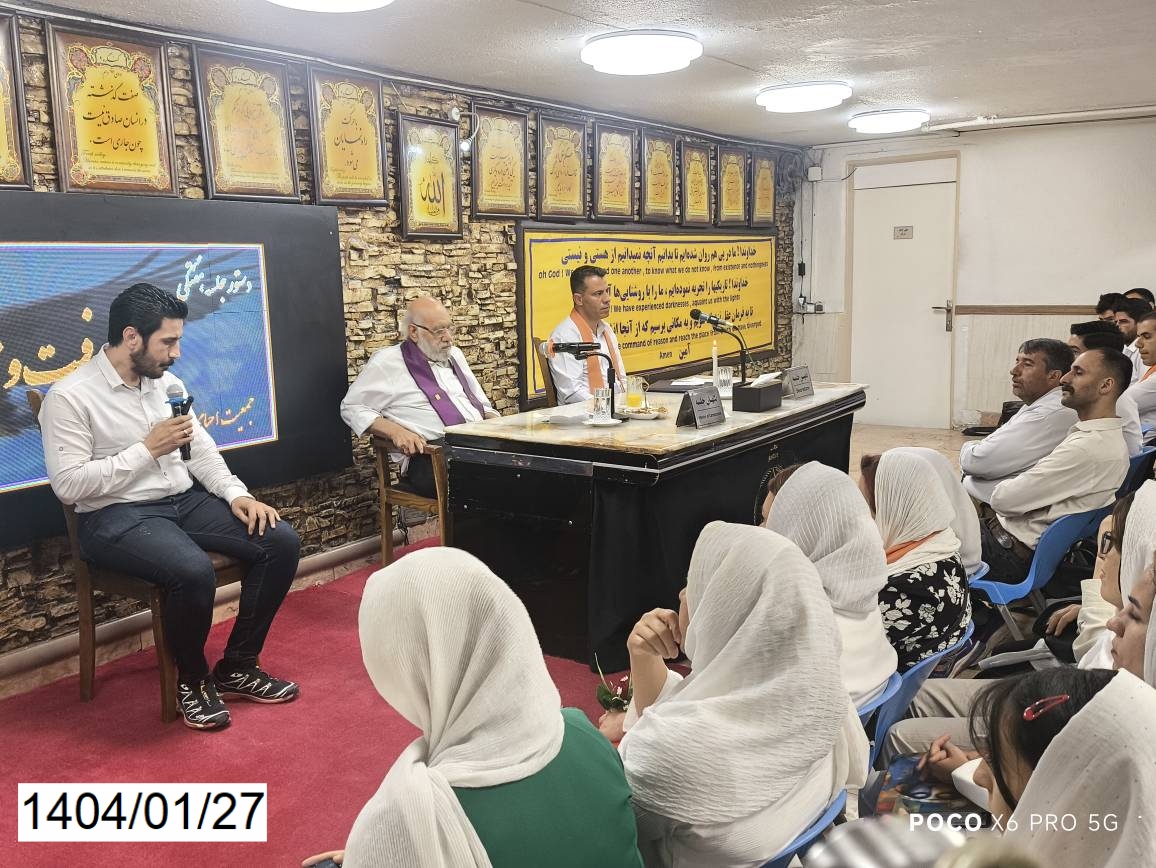
This was the Sultan’s lesson: Some of us only know and follow instructions literally—we do exactly as told and nothing more. Others, however, think deeply, ask questions, and gather complete knowledge. This is the difference between a human and computer.
A similar lesson about foresight and understanding:
A man was performing ablution at a fountain and left his ring behind. He told his servant: “Go check if my ring is still at the fountain.”
The servant returned and said: “Yes, the ring is there.” The man said: “ok now give it to me.” The servant said: “you only told me to go and see if your ring was there, you did not tell me to bring it back!” You only asked me to check if it was there! The man sent him again to bring the ring. When the servant returned, the man asked if he has found the ring, he replied: “yes, but as I decided to take it, another person came and took it!”
This is the story of many of us. Many people only do exactly what is asked, without foresight or initiative. Others think ahead, anticipate issues, and act wisely based on true rules, true way and true information. Another person only goes to find the ring [without taking it] or where the Caravan is heading [without knowing its destination, its leader and its information].
This distinction applies to leadership and management.
It reflects human intelligence—the ability to analyze everything thoroughly, rather than following commands blindly.
So, the conclusion we want to reach is this:
If we attain a rank or position, we must always remember where we came from. Holding a title or responsibility does not make us different from others—it does not grant us exceptions. The law applies equally to everyone.
Additionally, when someone is promoted—whether appointed as an agent or a border guard in a branch—we should not question why they were chosen. Sure, there may be others more qualified than the appointed person, but it is not our place to assume that they have been selected as agent because of favoritism. Sometimes, a selection is made without clear reasoning, and that is okay—there will be future opportunities for other capable members to become agent.
But we must not assume that appointments are based on favoritism or connections. In Congress 60, we have made every effort to ensure selections are based on pure, ethical conduct. God willing, we will continue to uphold this principle.
You, too, should engage in discussion—let’s see where this issue leads. Thank you all for listening to my words. I truly appreciate it.
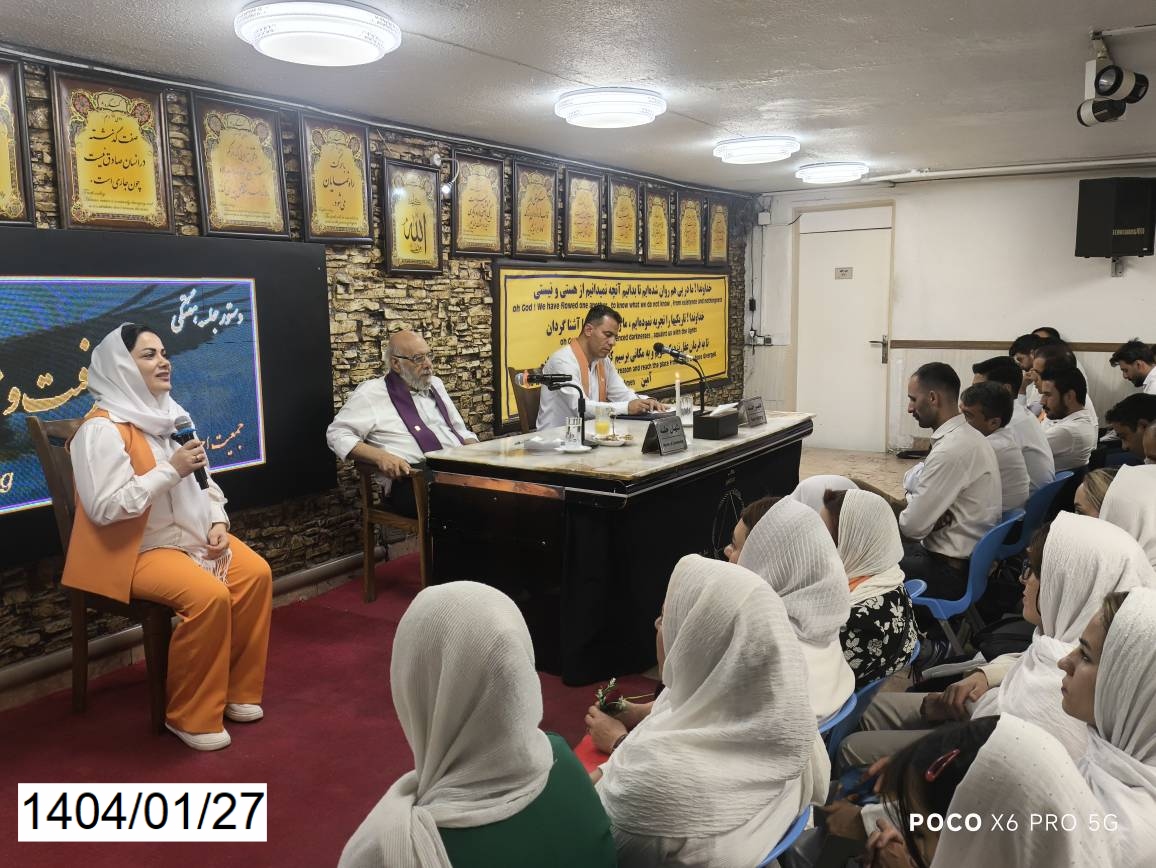
Then the Eleventh Law was performed in the meeting, where baskets are turned around and Congress 60 members donate money for Congress 60 expenses.
After the Eleventh Law, the Anthem of Congress 60 was played and all the members sang the song together.
Mr. Dezhakam continued his speech: Hello, friends. I am Hossein, a traveler.
I would like to clarify something. Recently, POS machines were introduced into our sessions, but the Eleventh Law has significantly declined—last year, it dropped dramatically. This decline is only due to the lack of opportunities to use POS machines during meetings.
First, let’s be clear:
Any POS machine available in Congress 60 sessions belongs to Congress 60, and participants can use them to make card transactions, except for purchases of Dezhakam Publications.
Across all branches:
- Some may claim that this POS machine belongs to the Disciplinary Committee,
or land-related transactions, or this or that. This is not true, all POS machines should be freely accessible to members, as they all contribute to Congress 60.
If we need to manage Disciplinary Committee accounts, it does not matter which POS machine a person uses—the receipt should be given to the border guard, who will then write “Disciplinary Committee” on the back of the receipt.
Similarly, if someone makes a transaction under the Eleventh Law, they can use any available POS machine, and the receipt should be handed to the border guard, who will mark “Law Eleven” or “Land Account” on it.
To simplify the management of disciplinary funds, we sometimes designate one specific POS machine for disciplinary transactions. However, imagine 500 people trying to make a payment, and there’s only one POS device! Meanwhile, other POS machines in some branches remain unused. We must fix this.
Before sessions begin, ensure that all POS machines are accessible. Place them strategically:
- One at the front of the hall,
- One at the back, another at a reasonable distance, so multiple people can transact simultaneously.
Receipts must then be handed in, and you should write the appropriate description [for what reason it was paid] on the back. But even if no receipt is given, it does not matter—the funds are deposited into Congress 60’s account, and that is what truly matters.
Well, it does not matter, if no receipt is provided for the Eleventh Law, because the money still reaches Congress 60! So, do not restrict POS machines—if we limit them, it will only cause more problems.
Thank you. Now, let’s move on to participation.
Then several Congress 60 members participated in the discussion.
During the discussion, one of the members talked about his addictive drug “Surche”, and Mr. Dezhakam clarified that Surcheh is a type of heroin [widely used in southern cities of Iran].
Then Companion Zahra from Bandar Abbas participated in the discussion and Mr. Dezhakam explained: Right now, Mrs. Zohre, Zahraz’s guide, is an exemplary companion—a companion who, every week, journeys from Isfahan to Bandar Abbas at her own expense to help others.
We have many such individuals in Congress 60, and the people of Bandar Abbas should truly appreciate them. She used to travel from Isfahan to Bandar Abbas Island, and today, we have female travelers who regularly go to Kerman, Qazvin, Mashhad, Shirvan, and other cities. They are constantly traveling, back and forth, showing incredible dedication.
This dedication is truly valuable. Sometimes, you see a guide who has come from far away, arriving two hours early to a session in Kerman—while the locals show up thirty minutes late. Little by little, this culture is evolving, and we must acknowledge and appreciate these dedicated individuals. We should always be grateful for their efforts.
Of course, they themselves understand that, despite everything they do, it is still a small task compared to what Congress 60 has given them.
In any case, thank you very much—and let’s now offer a contribution to Ardabil before we run out of time.
Translated by Elahe
